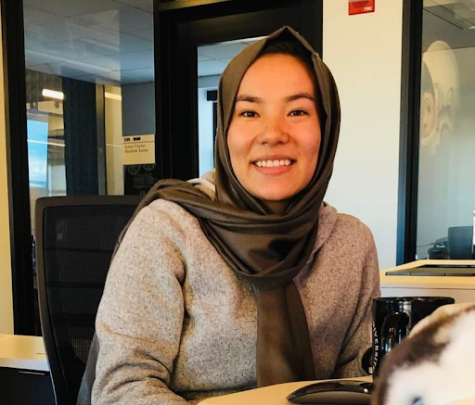“The Last Kings of Shanghai”

The Last Kings of Shanghai”: Jonathan Kaufmann in conversation on new book @ Northeastern University
February 14, 2023
When one leaves the Cathay hotel on Shanghai’s famous waterfront, the majesty of the legacy of China’s two great Jewish dynasties is at its most visible and glamorous.
Professor Kaufman talked about his book “The Last Kings of Shanghai: The Rival Jewish Dynasties That Helped Create Modern China,” on the evening of Wednesday, Feb. 8, at Northeastern University’s Alumni Center, 716 Columbus Ave.
Jonathan Kaufman is a Pulitzer Prize-winning reporter, editor, and author. He joined Northeastern University in 2015 as Professor and Director in the School of Journalism. Prior to joining Northeastern, he held senior positions at Bloomberg News, The Wall Street Journal and The Boston Globe.
The book details the prosperity of business in China for the past century and the rivalry of wealth and influence between two Jewish families that stood astride Chinese business and politics for more than 175 years. Kaufman’s book is the story of opium smugglers, family rivalry, political entry, survival, and the rise of China. This book is a story of opium smugglers, family competition, political intrigue, survival, and the rise of China.
“By writing this book I find myself wondering sometimes 50 or 100 years from now,” Kaufman said. He added, “When someone writes our history, are they going to ask the same questions and drown in thoughts as us on how to make moral choices? What is the accountability for what you did?”
Kaufman acknowledged his interest in the Jews in China is not well known or common. He first discovered the stories on a trip to China as a foreign correspondent in 1979, where there were a lot of “Mao suits” and “far more bicycles than cars.”
“I was in Shanghai walking down the famous art deco street right on the water and I spotted a hotel, went inside and it was like walking into a movie set from the 1930s,” Kaufman said. “Someone told me that it had actually been built by a Jewish playboy millionaire, named Victor, and that in its time, it had been one of the greatest hotels in all of Asia.”
The book is the story of how two opposing families, the Sassoon’s and Kadoorie’s, took part in the economic boom that made China open for business with the rest of the world while remaining seemingly unaware of the extreme inequality in the nation and the political unrest right outside their door.
The Sassoon family, who were originally from Baghdad, Iraq, relocated to Bombay, India, and subsequently emigrated to China, England, and other nations. They amassed an enormous fortune through finance and trade. They had a huge impact on initially opening up China to foreign trade. After World War II, the Sassoon dynasty fled to Britain and left “the world of movers and shakers” in Shanghai in 1949, following the Communist conquest of China and expropriation of their holdings.
“Victor Sassoon buys a roundtrip ticket back to Shanghai, but he never returns. He said, ‘I didn’t leave China, China left me’,” Kaufman said.
Kaufman’s book also tells the story of the Kadoorie dynasty, who competed with the Sassoon’s and made their wealth in Shanghai between the two world wars. The Kadoorie’s incredible riches persisted even when the Communist Party of China swiftly took over and occupied Shanghai, forcing the family to flee back to Hong Kong.
“The Kadoorie were certain that China would one day rise again and offer business prospects as well as the ability to supply commodities for the ensuing 50 years,” Kaufman said. They were right.

